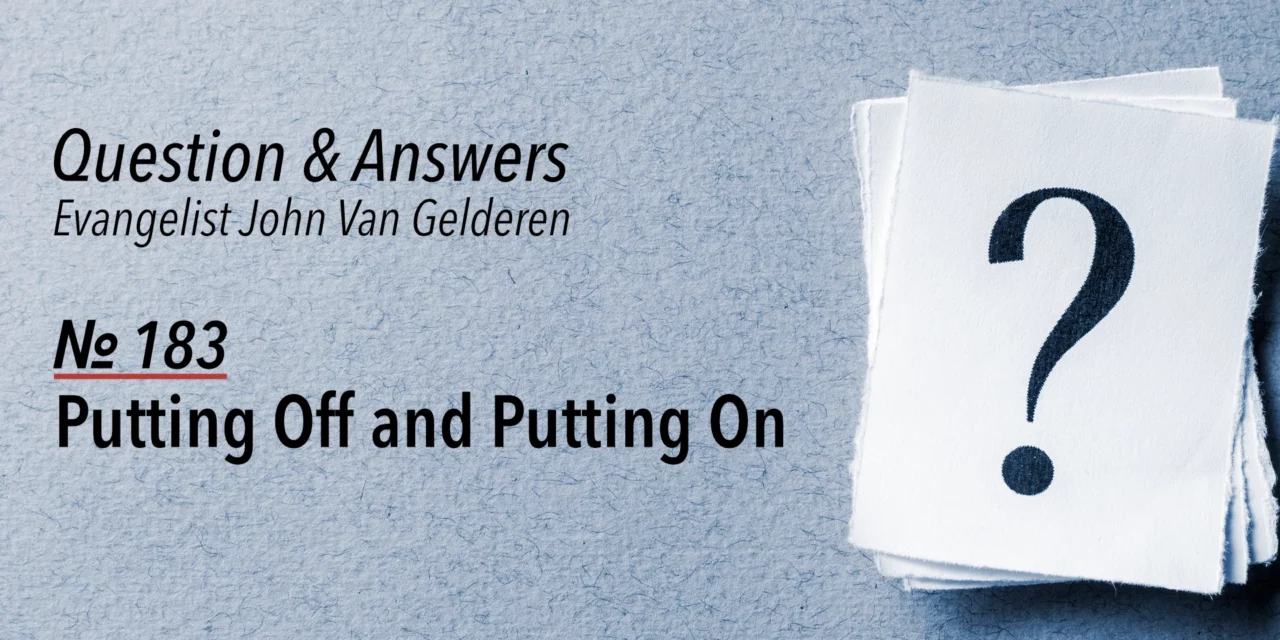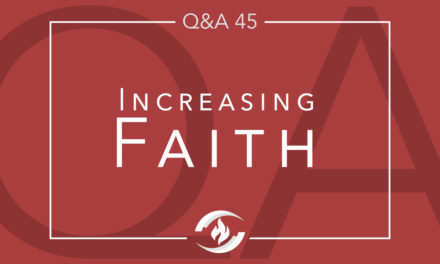Q.
Could you please explain Ephesians 4:22-24. I’ve been pondering this for quite some time especially verse 24. I would appreciate your thoughts on this.
Thank you,
Eric
A.
Great passage!
Ephesians 4:22-24 states, “That ye put off concerning the former conversation the old man, which is corrupt according to the deceitful lusts; And be renewed in the spirit of your mind; And that ye put on the new man, which after God is created in righteousness and true holiness.”
These verses follow Paul’s statement about learning Christ—the truth as it is in Jesus (Eph. 4:20-21). Interestingly, both the opening phrase of verse 22 and verse 24 are infinitives, not imperatives. Both are in the aorist tense, which is emphasizing the fact of an action generally in the past. So, is this something we are to do or has this been done? The parallel passage in Colossians 3 sheds immense light.
Colossians 3:9-10 says, “…seeing that ye have put off the old man with his deeds; And have put on the new man, which is renewed in knowledge after the image of him that created him.” The verbs here are also aorist, but are more clearly translated as occurring in the past. However, earlier in this passage, Paul commands in the imperative, “put off…” (Col. 3:8) and “put on…” (Col. 3:12).
The sense seen on this context is that there is both something that has been done and there is something to do based on what has been done. The idea is: Since you have put off the old man (unregenerated spirit), now put off all that he was about, and since you have put on the new man (regenerated spirit), now put on all that he is about.
Since Ephesians 4:24 describes the new man as being created after God in righteousness and true holiness, it indicates the new man is the new creation of the regenerated human spirit. The new man now joined to the indwelling Holy Spirit is righteous and holy. Therefore, look the Holy Spirit’s leadership and trust His power to put off the old programming and put on the new programming based on the exchange of the old man/spirit for the new man/spirit. This obeys the imperative to allow yourself to be renewed in the spirit of your mind (Eph. 4:23).












John, please ignore my previous comment that got flagged for spam and needs approval, I have edited my response and made a few changes anyway. I am only commenting on this because I spent a few hours on these exact infinitives trying to determine if this passage was a statement about position, or an exhortation regarding behavior. You said “Both are in the aorist tense, which is emphasizing the fact of an action generally in the past” It is true that the aorist tense typically is an action in the past for INDICATIVE FINITE verbs, but when the verbs are… Read more »
Very helpful Jordan
Thanks Jordan for your work on this. How one interprets the old man and new man is key. I understand them to refer to the human spirit (Rom. 6:6). Thus the idea that I mentioned in the article:
Since you have put off the old man (unregenerated spirit), now put off all that he was about, and since you have put on the new man (regenerated spirit), now put on all that he is about.
Thanks for the spade work!